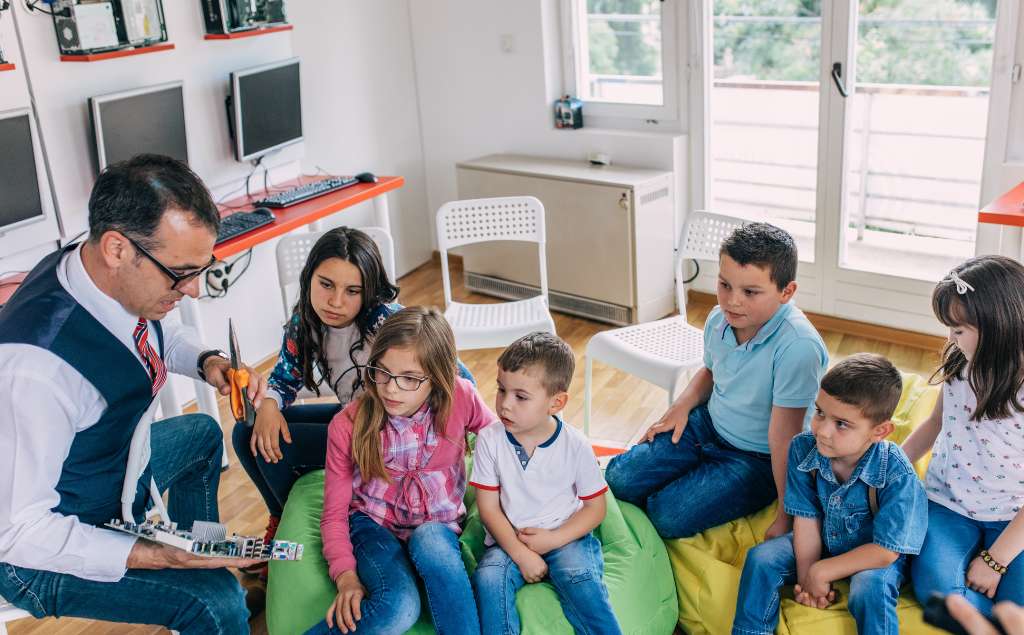Choosing a school for your child is a monumental decision. With a vast array of educational options available, private schools can be an attractive choice for many families. But what makes a great private school, and how do you know if it’s the right fit for your child?
This blog post dives into the key characteristics that define a truly exceptional private school experience. We’ll explore factors beyond academics, considering the environment, community, and overall approach to learning that fosters a thriving student body.
1. Academic Excellence with Individualized Attention
Strong academic programs are a hallmark of good private schools. They typically boast smaller class sizes compared to public schools, allowing for more focused instruction and personalized attention. This translates to a deeper understanding of concepts, a chance to identify and address learning gaps sooner, and the ability to tailor the learning pace to each student’s needs.
Great private schools go beyond rote memorization and standardized tests. They cultivate a love for learning by encouraging critical thinking, problem-solving skills, and intellectual curiosity. This often involves project-based learning, where students delve into real-world applications of knowledge, fostering creativity, collaboration, and communication skills.
2. Nurturing Well-Rounded Individuals: Beyond the Books
While academics are important, a great private school recognizes the importance of a holistic education. Look for schools that offer a rich and diverse range of extracurricular activities. This could include athletics, visual and performing arts programs, clubs focused on STEM (Science, Technology, Engineering, and Math), debate teams, and opportunities for leadership development.
These activities provide avenues for students to explore their passions, discover hidden talents, and develop skills that complement academics. They also foster teamwork, social interaction, and a sense of belonging within the school community.
3. A Strong Focus on Social-Emotional Learning (SEL)
In today’s world, it’s crucial for students to develop strong social-emotional skills. Great private schools integrate SEL into the curriculum, helping students navigate complex emotions, build healthy relationships, manage stress, and make responsible decisions. This often involves programs that teach conflict resolution, empathy, self-awareness, and communication skills.
By prioritizing SEL, these schools cultivate well-adjusted and emotionally intelligent individuals who can thrive not just academically but also in their personal and professional lives.
4. Diverse and Inclusive Community
A diverse student body enriches the learning experience for everyone. Look for schools that actively promote inclusion and create a welcoming environment for students from all backgrounds. This exposure to different cultures, perspectives, and experiences fosters empathy, tolerance, and global citizenship.
5. Strong Commitment to Faculty Development
Great private schools invest heavily in their faculty. They attract and retain talented, passionate educators who are experts in their fields and committed to student success. Ongoing professional development opportunities ensure that teachers stay abreast of the latest pedagogical methods and educational technologies. This translates into more engaging and effective learning experiences for students.
6. A Clear Mission and Values Alignment
Every school has its own unique philosophy and values. Look for a school whose mission and core values resonate with your family’s beliefs. Does the school prioritize academic rigor, community service, or fostering a love for the arts? Does it emphasize a religious background, or is it a secular institution? Understanding the school’s ethos will help determine if it’s a good fit for your child’s individual needs and your family’s expectations.
7. Strong Parent-Teacher Partnerships
A collaborative relationship between parents and teachers is crucial for a child’s success. Great private schools actively engage parents and encourage open communication. This can involve regular parent-teacher conferences, informative school newsletters, and opportunities for parent involvement in school activities.
8. A Safe and Secure Learning Environment
The physical and emotional well-being of your child is paramount. Look for schools that prioritize safety and security, with clear protocols and procedures in place. This could involve secure buildings, a strong presence of security personnel, and anti-bullying programs that promote a culture of respect and inclusivity.
9. Transparency and Open Communication
Great private schools are transparent in their operations. They openly communicate their admissions process, financial aid options, curriculum, and student performance data. Look for schools that hold regular information sessions and have an easily accessible website that provides comprehensive information for prospective families.
10. A Strong Track Record
While past performance isn’t always a guarantee of future success, a school’s track record can offer valuable insights. Consider factors like college acceptance rates, student achievements in extracurricular activities, alumni success stories, and faculty credentials.
Conclusion
Choosing the right private school is an investment in your child’s future. By prioritizing the factors outlined above, you can identify a school that fosters academic excellence, social-emotional well-being, and a love for learning. Remember, the best school is the one that will nurture your child’s unique talents and potential, empower them to become a well-rounded individual, and prepare them for success in a rapidly changing world.





